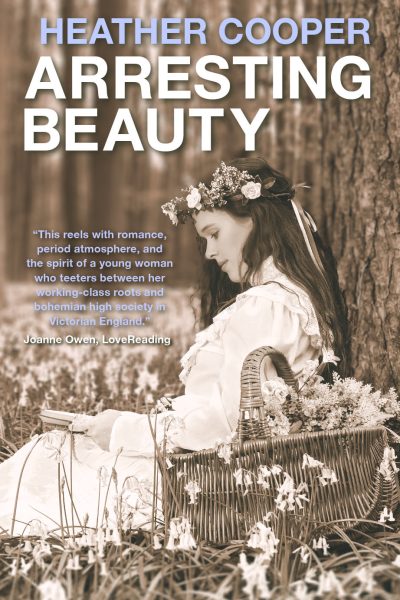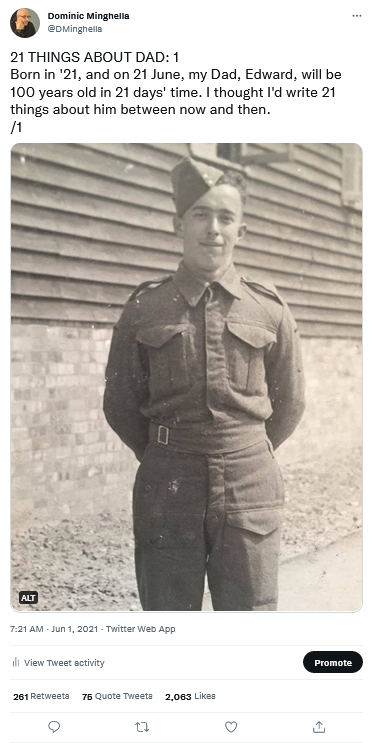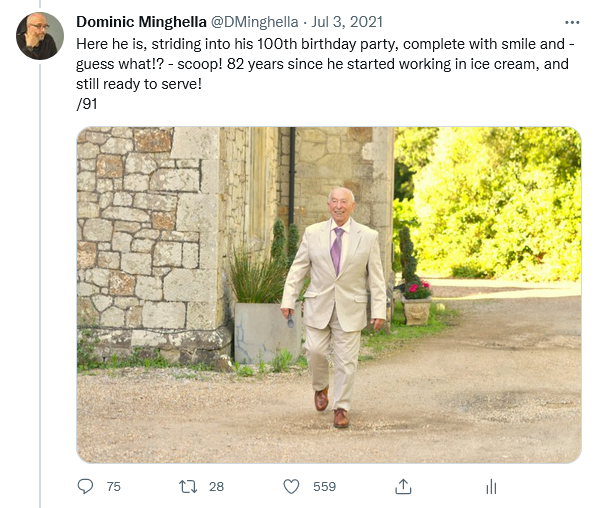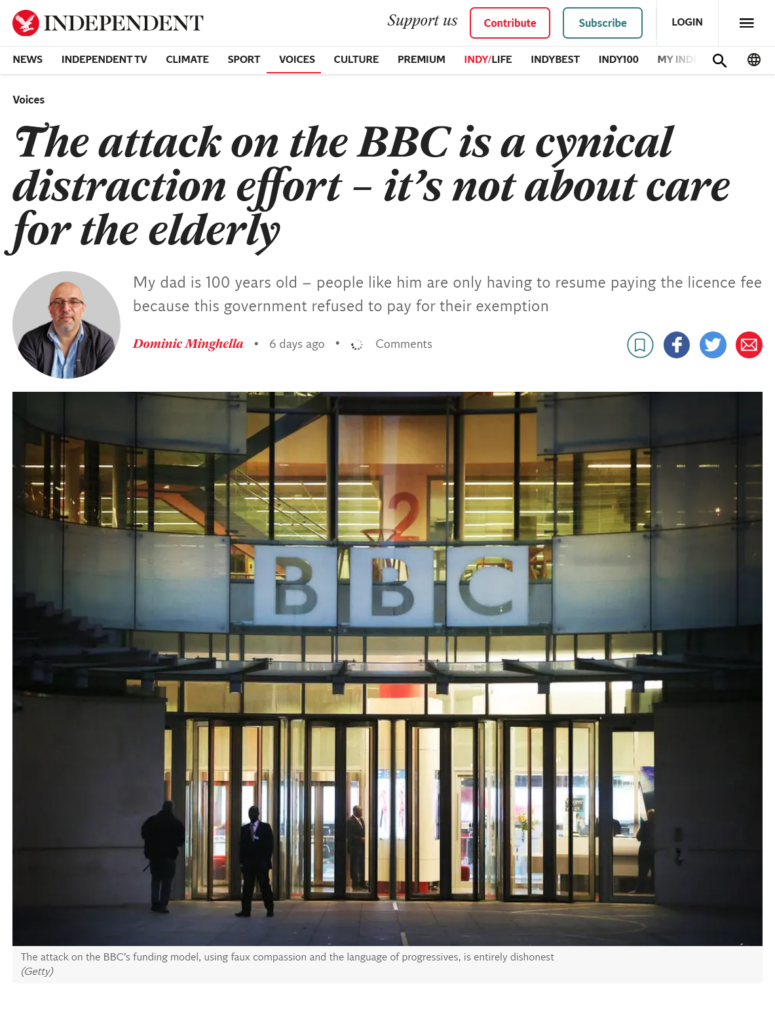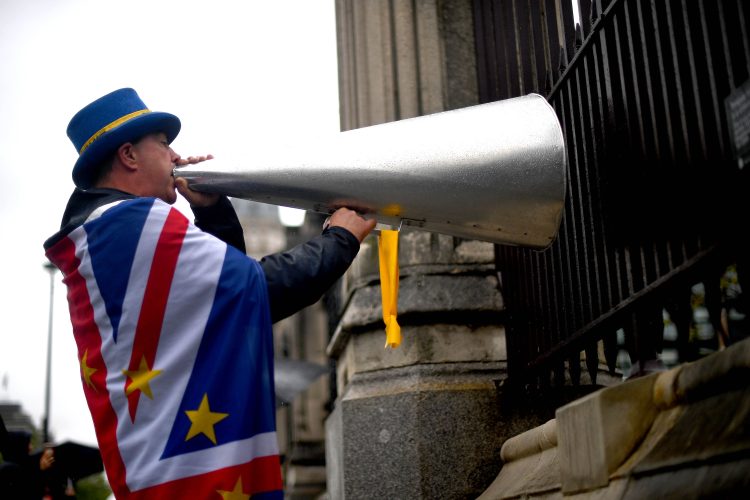
I was at junior school with Steve Bray. Steve was smart but rebellious. He looked at the rest of us like we were dunces when our teacher asked if anyone knew what the ‘DC’ in Washington, DC stood for. Someone said ‘Democratic County’ and Steve shook his head in despair. Steve’s brother was a certified genius and had been helicoptered off the Isle of Wight to a scholarship at some glamorous school for geniuses on the mainland. Steve probably had identical smarts, but less good fortune.
Steve was the bane of our authoritarian teachers’ lives. When we were very little, they taught us how the Romans brought civilisation to Britain. Steve threw up his hand and said, ‘Do you call strapping a man to a boulder and then rolling that boulder down a hill civilised? Because I don’t.’ This didn’t go down well.
Aged about nine, Steve’s IQ was assessed at over 156 on the Wechsler scale. He was extremely widely read, and knew more about most things than most teachers. When he challenged them, it was hard for them to admit error, and they needed to ‘win’, to save face and keep order. Their arguments boiled down to ‘because I’m the adult here’. He would counter with the question, ‘How does being born at an earlier date than me make you right?’
Steve was an atheist and didn’t want to attend school ceremonies at the nearby church. The school insisted it was an integral part of our community life. At Harvest Festival, with donated food bedecking the long tables, and parents in best bib, the chaplain talked about sacrifice being at the heart of Christianity, with the symbol representing Christ’s sacrifice at the centre of it. Steve put up his hand: ‘I think you’ll find the cross predated Christianity, and was in fact a pagan symbol adopted by the Church.’ Steve was barred from attending school church services after that.
For all his brashness, Steve was an astute reader of people. One of our teachers used to devise spelling tests notionally for the whole class, but which in fact were targetted at me. I was a good speller, and he wanted to catch me out. I expect I enjoyed this attention, but Steve suggested that the guy had a prurient interest in me. (His words were blunter than that, but I’ll spare you.) I think I knew deep down he was right, and possibly Steve alerted me to, and saved me from, potential trouble there.
Steve refused to follow the rules and wear his cap en route to school, and the sadist in charge of discipline made it his business to call Steve into the tuck shop, where he kept his bittersweet lair, and beat Steve hard with a shoe. Steve was tough, but the beatings were tougher. I’ll never forget his broken face, thick with tears as he left the tuck shop after a particularly severe thrashing, clutching his rear. His bravado was gone, replaced by the shock of pain, shame and raw fear.
But bravado was Steve’s fallback. He used to encourage me to play truant, and once the sadist came by in his car – surely not by chance – and wound down his window to ask if we were, as we had informed the school, unwell. I hung back, frozen in fear. But Steve took a drag on a cigarette and leaned into the sadist’s window, and blew the smoke into his face. ‘Very,’ he said. I couldn’t believe the daring.
We lost touch when I left that horrible school, but I gather Steve was expelled soon after.
I met him again at college, where he had morphed into a mouthy socialist worker. He riled our teachers with brilliance of mind, rigidity of argument and incapacity to conform. He talked openly in class about his reliance on cannabis, and did precisely no work. He was cleverer by miles than me, and knew more about politics and philosophy than I will ever know, so, arguably, precisely no work was the amount he needed to do. He was perhaps not the greatest of abluters, and his sweet, defiant, gifted maladorousness went with him when he was ‘sent down’ after a couple or three terms.
Another Steve Bray – and by now you may be suspecting, correctly, that these Steve Brays are not the one who was arrested yesterday in Westminster under the new ‘noisy protest’ law, and are creative amalgams of individuals I have known – was a gifted university philosopher. A maths prodigy plucked from poverty and sent to Oxford at 16, he was the sharpest mind I’ve known to date, and a brilliant, empowering and illuminating teacher. His colleagues more or less hated his guts. His unwashed and unkempt presentation, his verboten cigarettes in the hallowed halls, his popularity with enthralled students. And above all, his incessant challenge. Like new-Bray-on-the-block, Mick Lynch, he would gladly, and firmly, fix a fellow don with a hard stare and state, ‘You Are Wrong. That Is A Lie.’ He demolished arguments with a devastating flick of the intellectual wrist, and left distraught scholars lost in the ruins of their painstakingly-built theses. He was never given tenure.
I’m guessing at your school, or your college, or your place of work, or in your family – somewhere in your story, there is a Steve Bray. Someone who tells it how it is. Someone with a good brain who can’t be quiet, can’t be polite, can’t help standing up to authority.
In my experience, the Steve Brays of this world speak for those of us who are too shy, too conformist, too cautious, too careful to pipe up. In doing so, they put their heads above a dangerous parapet. We all know – and even THEY know – that it is only a matter of time before the powerful take them down. Even when they are right – especially when they are right – they threaten order. They cannot be tolerated. If existing rules cannot be brought to bear against them, new ones will be cooked up to do the job.
The rest of us hang back, keeping our distance, not wanting to go down with them. We tell ourselves there are better ways to make the points they are making. More nuanced ways. More polite ways. More constructive ways. We tell ourselves, perhaps, that some systems are better reformed from the inside, justifying our conformity. We tell ourselves that, in the end, these guys are society’s losers, and it’s a shame, but their way is not the right way.
I have also met the real Steve Bray. The “Stop Brexit” Steve Bray. But I can’t say I know much about his story. I don’t know if he’s unusually clever, like the others I’ve known, or was beaten at home, like one I’ve known, or a little bit ‘on the spectrum’, like the ones I’ve known. I don’t even know if he’s a good bloke, decent though he seemed when we chatted. Like all the Brays I’ve met and you’ve met, I highly doubt he is a messiah, and I’d be surprised if he wasn’t a very naughty boy.
But I do know this. He speaks the truth. If “Stop Brexit” Steve had been wrong, and Brexit had turned out to be all sunlit uplands and Britannia ruling the waves, he’d be a forgotten irrelevance by now. ‘That bloke with the hat,’ we’d say. ‘The one with the megaphone. What was his name?’
But he wasn’t wrong. Brexit has demonstrably torpedoed our economy, our unity and our international standing. It has damaged us below the waterline, and he was right to warn us. Ain’t no megaphone loud enough to get that existential message across.
Is he wrong now on corruption inside government? Hardly. From a ‘system’ in which the Prime Minister polices himself, to the wholesale dispensing of public funds to friends, family, donors and client media, the corruption charge appears all too real.
To this corrupt regime – to this Vote Leave regime – Bray isn’t just a pain in the arse armed with a megaphone; he’s a pain in the arse armed with the truth.
So, like all the Brays I’ve met and you’ve met, they will stop him. Make no mistake, he will lose. They will take him into their tuck shop and whoop his ass. The question for the rest of us is are there really politer, more constructive, more effective ways to speak truth to this particular brand of corrupt, dishonest and self-policing power? Or to put it another way, when he eventually exits the tuck shop a broken man, will we, who did not stand with him, be able to meet his gaze?
Post Views: 15,117
